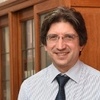UCT leads in training aspiring African neurologists
19 November 2021 | Story Niémah Davids. Photo Getty Images. Read time 6 min.
Training a pool of neurologists in sub-Saharan Africa is an important step towards Africanising the vital discipline of neuroscience on the continent. In addition, it will help to facilitate inter- and cross-disciplinary research and accelerate treatment options for common neurological disorders like stroke and epilepsy, and neurological infections such as tuberculous meningitis (TBM) and HIV-related dementia.
But according to Dr Lawrence Tucker, the head of the Division of Neurology at the University of Cape Town (UCT) and Groote Schuur Hospital (GSH), not nearly enough young physicians on the continent are opting to specialise in this branch of medicine. As a result, the discipline is severely under-represented across the African continent.
Neurology is the branch of medicine that diagnoses and manages disorders related to the central nervous system (the brain and spinal cord) and the peripheral nervous system (the nerves and muscles).
“Despite the enormous burden of neurological disease in sub-Saharan Africa … neurology is still not widely regarded as an indispensable [medical] discipline.”
“Despite the enormous burden of neurological disease in sub-Saharan Africa – think of stroke and epilepsy – neurology is still not widely regarded as an indispensable [medical] discipline,” Dr Tucker said.
“Fortunately, this is gradually changing as the significant patient and public health benefits of effective management of numerous severe neurological conditions become more widely recognised.”
Skills shortage
In South Africa, roughly 150 neurologists are equipped and skilled to treat patients, but only a handful (35) work in public sector hospitals like GSH. The remainder, Tucker said, have been absorbed by private hospital groups in the country. Worryingly, he pointed out, the 35 neurologists who practice at public sector hospitals are expected to service 80% of the South African population – a near impossible task.
“If you think about it, that’s about one neurologist per one million patients who depend on the public healthcare system in this country,” he said. “And South Africa is one of the better equipped countries on the continent when it comes to this scarce skills area. Numbers for the rest of sub-Saharan Africa are much [lower].”
For example, he said, Zimbabwe operates without a single neurologist in that country, and Mozambique and Namibia have only three neurologists each.
Mission possible
However, in the past 10 years, he said, the number of specialists in the field has steadily increased. But it’s nowhere near where it needs to be. Tucker, who oversees the training of neurology registrars at UCT and GSH, said adequate training plays a pivotal role in this process, and UCT is on the right track.
Just a few years ago, only three registrars enrolled to participate in UCT’s four-year specialist training programme. But since the division launched the International Supernumerary Programme for Neurologists – a specialist training programme aimed at physicians from sub-Saharan African countries – there’s been an uptick in demand. Currently, 10 registrars are participating in the course.
“We now have doctors from across the African continent training with us, and new applications arrive on a weekly basis.”
“It’s been my ambition over [the] years to increase the number of neurologists we train at UCT, and we’ve been very successful. We now have doctors from across the African continent training with us, and new applications arrive on a weekly basis,” Tucker said.
Because funding remains a serious challenge, UCT and GSH have partnered with two private hospital groups, Life Healthcare and Mediclinic Southern Africa, to fund South African physicians who are interested in specialising as neurologists. In addition, the World Federation of Neurology (WFN) has come on board to fund registrars on the programme.
The benefits
Training neurologists yields many benefits. Besides contributing to the neurological skills pool in sub-Saharan Africa, the programme has developed a network of neurologists outside of South Africa with whom the division constantly interacts and collaborates.
“If they [neurologists] are trained by us, then they know us well. When they return to their home countries, we can maintain contact and continue conversations and collaborations. This means that there’s a solid and valuable network developing among all of us on the continent, which is guaranteed to benefit our patients,” Tucker said.
He has also committed to taking training a step further by spearheading a super specialist training programme with newly qualified neurologists in mind. The objective, he explained, is to provide trained neurologists with additional training in a neurological area of their choice.
“Let’s say you qualify as a neurologist and your area of interest is stroke. You can come to us and do a year-long clinical stroke fellowship. This means that you’ll not only be a qualified neurologist, but you will also develop additional skills [to manage] strokes,” he said.
The division offers clinical fellowships in stroke, epilepsy, neuromuscular disorders, and neurological infections like TBM and HIV.
Recognition and collaboration
In recognition of their outstanding work in the field, the division has been accredited as a regional neurology training centre by the WFN – the largest neurology-focused professional organisation in the world.
“This recognition by the WFN has been very good for us, especially when it comes to securing funding for our registrars, fellows and research students,” Tucker said.
He added that his focus on training also aligns itself with the vision of UCT’s Neuroscience Institute, a multidisciplinary clinical and research centre established to facilitate integration of patient care, research, teaching, training and advocacy.
“This will help us achieve great things for neurology in South Africa and the African continent.”
“The centre is multidisciplinary, which means that the neurologists we train can collaborate with just about anyone in the centre including neuropsychologists, psychiatrists, neurosurgeons and neuroradiologists,” he said.
“This will help us achieve great things for neurology in South Africa and the African continent.”
 This work is licensed under a Creative Commons Attribution-NoDerivatives 4.0 International License.
This work is licensed under a Creative Commons Attribution-NoDerivatives 4.0 International License.
Please view the republishing articles page for more information.
Faculty of Health Sciences News

Renowned cancer scientist Prof Sharon Prince has been honoured with the 2025 A.G. Oettlé Memorial Award for her pioneering research, leadership and dedication to developing affordable cancer therapies in South Africa.
23 Dec 2025 - 5 min read






















